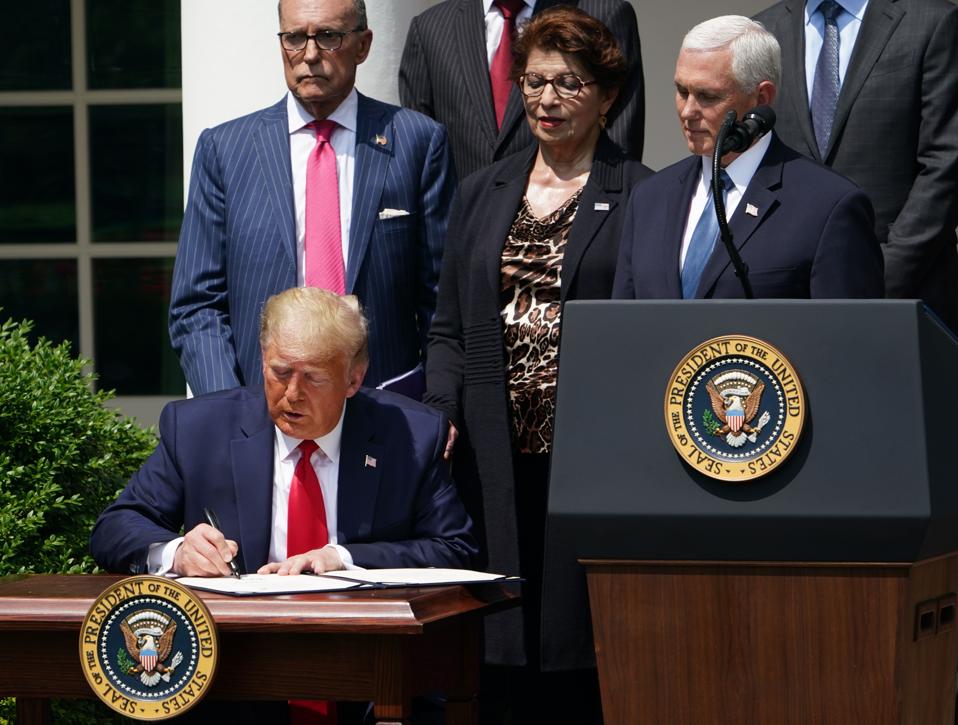June 30 is the deadline for small businesses to apply for PPP funding, a key element of the CARES Act stimulus plan passed by Congress and signed by President Trump to kick-start the economy, which was reeling from the coronavirus.

US President Donald Trump signed the Paycheck Protection Program Flexibility Act of 2020 in the Rose … [+]
Overall, PPP lending has been a success. The SBA reported that it processed more loans to small businesses in the first month of the program than it had in the last 14 years combined, according to CNBC. The lending program provided funding to business owners who were struggling to pay their bills as many states, such as New York, New Jersey and Connecticut, essentially shut down their economies in an effort to stem the spread of COVID-19.
To date, more than 4,666,560 PPP loans have been made totaling roughly $515 billion, according to Treasury Department data. Although the program was highly criticized in its early stages because the lion’s share of loans were made by big banks to their own large customers, changes were made to the program that allowed smaller banks greater access to capital. In fact, institutions with less than $10 billion in assets made more than 2.3 million loans totaling $226 million – roughly 44% of all the PPP given to small business owners.

Summary of PPP Approved Lending through June 20, 2020.
The good news is that lending institutions, such as community banks with less than $1 billion in assets, Certified Development Companies (CDCs), CDFIs, and Fintech firms, opened access to black-owned businesses, and companies operating in economically disadvantaged areas. Additionally, a major restriction on the PPP funding, having to spend 75% on staff costs during an 8-week period, was eased to 60% and extended over a longer period of time. This change enabled business owners to use PPP dollars to cover other expenses, such as rent and utilities, thereby making the loans more palatable to borrowers.
Companies applying for PPP funding must meet the following lending criteria:
- Your business must have been operating on or prior to Feb. 15, 2020.
- Your business must have fewer than 500 employees (or fits the SBA’s small business size standard for its industry). It can also be a nonprofit organization, veteran-owned organization, Tribal organization, sole proprietorship. (Self-employed individuals and independent contractors also are eligible to apply).
- Owners with a 20% or higher stake in the business must be U.S. citizens or permanent residents.
- All owners must have no criminal record over the past seven years.
- The business and its owners are not delinquent on any SBA loan or other federal loan (and have not defaulted on any such loans in the past seven years).
- The business cannot currently be in bankruptcy proceedings.
As the clock ticks, PPP applications are still being accepted and about $130 billion has not yet been allocated. It is not too late to apply, but if you plan to take advantage of this program, do it quickly.

No Comments
Leave a comment Cancel